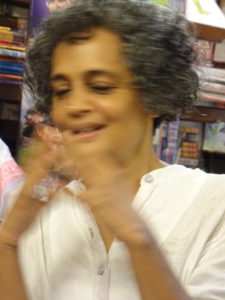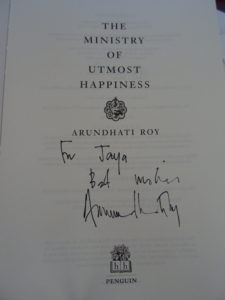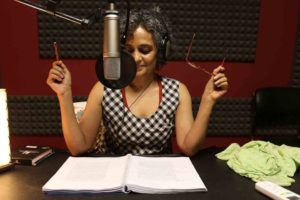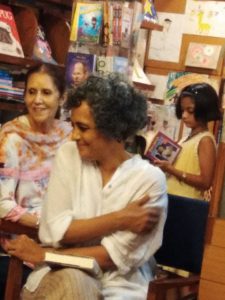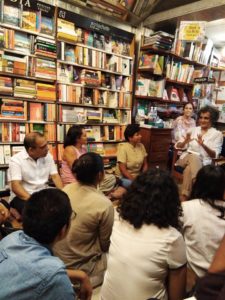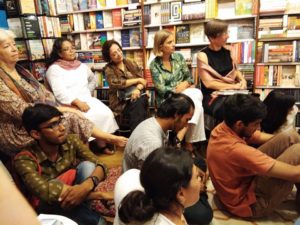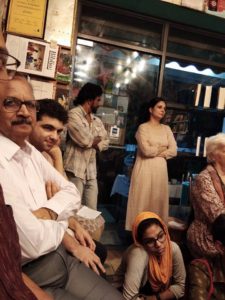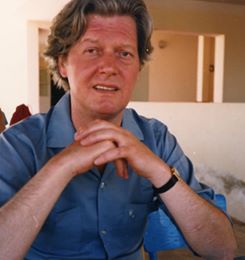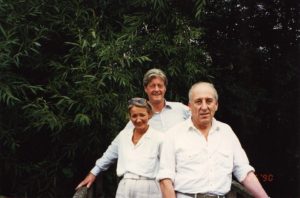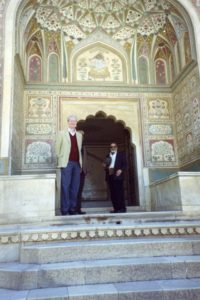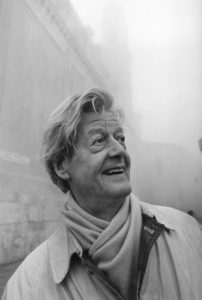An interview with Rebecca Servadio, Literary Scout and Managing Partner, London Literary Scouting
Rebecca Servadio, Literary Scout and Managing Partner, London Literary Scouting is an incredible person to meet, crackling with energy, eyes sparkling and speaking rapidly with not an urgency but because there is so much to share about the world of books. No time to waste. She is a powerhouse who is involved with organisations like PEN, World Without Borders, literary festivals, juror for various publishing awards etc. In 2017 she was recognised as one of the Whitefox “Unsung Heroes of Publishing“. Rebecca works for twenty plus publishing houses around the world, for example Riverhead/PRH in the US, Gallimard in France, Einaudi in Italy, Anagrama in Spain, Hanser in Germany, de Bezige Bij in Holland as well as working in film/tv and stage where she also works for BBC Film and the National Theatre amongst others. Rebecca and I met when we were a part of the Visiting International Publishers Delegation, Sydney (29 April – 5 May 2019). The following interview was conducted via email.

- How and why did you get into publishing?
The truth is that I love to read, I love literature, I love the thrill of losing myself within a book, the immediate travel. Immediately I am somewhere else, outside of my experience, inside the human experience whether it be emotional, intellectual or a page turner. I was and am still interested in people and in storytelling and in community and collaboration of all types and publishing is all these things. Creative with words. Local, particular, challenging, ever evolving, transformative, international – publishing is all those things and each interests me. I was a lawyer before starting to work in publishing and although I learnt both rigour and determination and other life skills that serve me well with my scouting agency, I found myself weighed down by the monotony and intense focus. Publishing is as varied as there are stories and people and I relish the challenge of connecting these two things with good books.
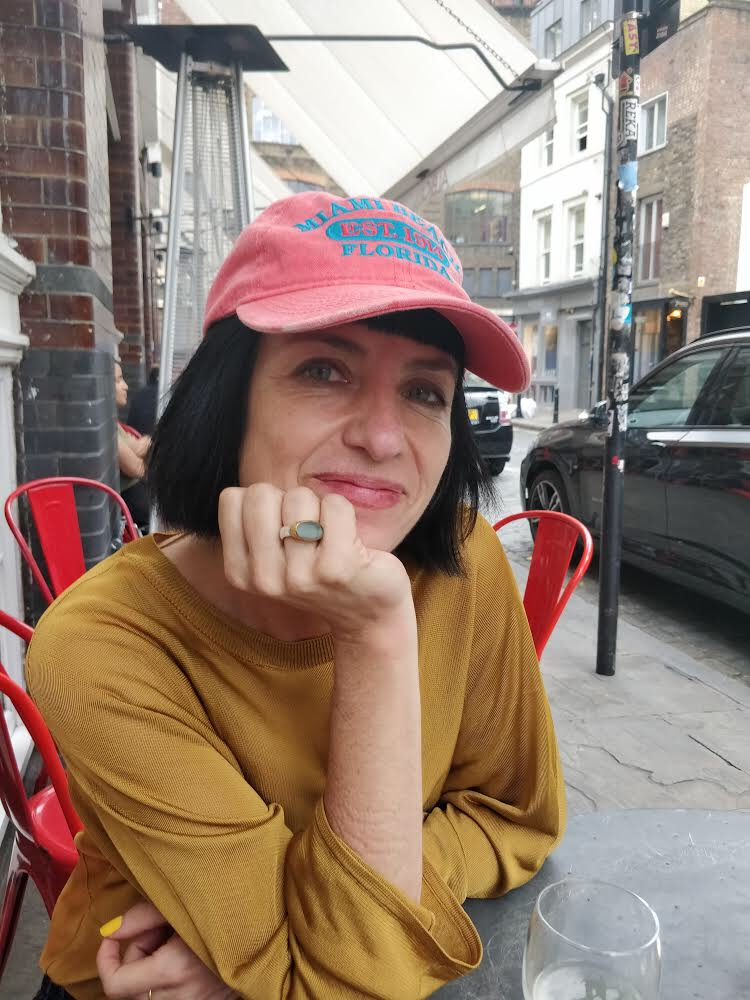
2. Why did you choose to be a literary scout and not a literary agent? What are the differences between a literary scout and a literary agent? Does it help to be multi-lingual as you are?
I think the real answer to that question is that I am interested in where the dots connect up and how you build bridges and connect people and books in different countries. I love building bridges and networks that surprise and so help books to travel and help the publishers that I work with discover and publish the best writing and author. I also like to communicate and talk in different languages and across different languages and different domestic, national and international realities. I read in English and Italian and French. I work closely with Spanish and have readers that read in the Scandinavian languages, German, and Portuguese. I think of scouting as curation, as gate opening, as intelligence, as the signal within the noise and the world is very noisy.
There are many differences between scouting and agenting but the primary one is that an agent represents his or her clients – writers generally speaking and is paid through a commission on the sale deal for the book of the author. An agent is always incentivised and interested to recommend an author (and a particular book) because that is the very nature of their job – their bread and butter consists in selling that authors works and so talking about them in a way that strengthen the hand and the value of the book. A scout on the other hand works for a publisher and helps the publisher navigate the publishing world and marketplace. The scout should be opinionated and recommend the best books for a particular publisher and again enable the publisher and their best interests and so advising against a book is as much part of the job as advising to buy a book more economically or again read/buy something different all together. A scout should never have a commercial incentive or interest to recommend a book to their publisher and their loyalty should always lie with the publisher and not the writer or the agent. A scout should not have a client – publisher house – in their home country and again work exclusively in each country unlike agents. Again agents generally work in one territory and not across territories although this is not true of co-agents or foreign rights agents in house or in agencies.
3. How and when was London Literary Scouting established? What are the genres you specialise in?
As Literary Scouts we are interested in and engaged with storytelling in all its forms. We look for the best fiction and nonfiction to be published, or published in English, as well as in other major languages, on behalf of our international Publishing Clients as well as for Film, TV and Theatre. Rather than thinking in ‘global’ terms, as London-based scouts we can and do individuate those ‘worldwide voices’ which speak across languages. London is the most international of cities and we read widely and omnivorously. Yes, they might be set in other countries, worlds and cultures, but the challenge is to recognise those singular and particular voices that can cross latitudes and longitudes. Without being defined or pre-occupied by ‘the new’ we help find the authors that will build the bridges to readers today, tomorrow and in the future.
London Literary Scouting was born from a partnership between Koukla MacLehose, Rebecca Servadio and Yolanda Pupo Thompson. Koukla MacLehose founded her eponymous scouting agency in 1987, as the agency grew and flourished in 2012 Koukla founded Koukla MacLehose Associates which then became MacLehose, Servadio and Pupo-Thompson in 2014. We are now known as London Literary Scouting and the agency is led by Rebecca Servadio
We read voraciously and widely. We don’t read academic books nor do we read picture books. We read and have readers who read with us in most of the major languages. We try and find readers on a case by case basis in the other languages.
4. What are the notable successes or even failures of your firm? (There is a learning to be gleaned from every experience!)
I think our successes are all in the breadth of our client list – wonderful publishing houses, the BBC, the National Theatre and production companies and well as the calibre and intelligence and hard work of our team. In terms of books there are many by SAPIENS is one of which I am proud.
5. How important are book fairs, rights tables, and international literature festivals to a literary scout?
Essential. Meeting publishers, agents – new friends and old friends, writers and book lovers – new friends and old friends, is right at the heart of the business. Publishing remains a people business so the opportunities to meet and exchange are these ones. Reading, listening to and meeting writers is equally important and interesting. Part of scouting well is understanding what you have in your hand and who needs to know about it when. Part of scouting well is understanding your clients – the publishing houses and their domestic realities and needs and so travelling regularly to their home offices and country and meeting them at fairs is essential.
6. You are an active participant with organisations that believe firmly in the power of literature/words like PEN and Words without Borders. Around the world there is a clamp down on writers. Literary scouts work internationally with their clients. With state censorship and self-censorship by writers/publishers increasing, how does a literary scout navigate these choppy waters?
Carefully. I think network and intelligence and understanding writing and the value of fact and information has never been more important.
7. As a signatory and an advisor to the PEN International Women’s Manifesto you are very aware of the importance of free speech. What are the ways in which you think the vast publishing networks can support women writers to write freely? Do you think the emergence of digital platforms has facilitated the rise of women writers?
This is a hard question to answer properly. I think the primary way that vast networks can support women writers to write freely is to ensure that they are as widely read as possible in as many parts of the world as possible both so that their writing – their freedom of expression is more protected in what is a public and international space and again that it reaches the widest number of people so that change and progress is enacted and again shepherded and enabled forward. Change and collaboration are radical and transformative, community in numbers affords some protection for free speech and again value and visibility. I would agree that the emergence of digital platforms has played an important and facilitatory role.
8. The porousness of geographical boundaries is obvious on the Internet where conversations about translations/ world literature, visibility of international literature across book markets, evidence of voracious appetites of readers, increase in demand for conversion of books to films to be made available on TV & videos streaming services, increase in fan fiction, proliferation of storytelling platforms like Wattpad, growth in audiobooks etc. Since you are also associated with trade book fairs like the Salone Internazionale del Libro, Turin, do you think these shifts in consumption patterns of books have affected what publishers seek while acquiring or commissioning a book?
I think that most publishers acquire and publish the books that they have fallen in love with and are interested by and that to some extent reflect or help us answer or perhaps simply understand questions about how to live and to be that are essential to the human condition and that the changes in the world are necessarily reflected in these choices as the readership too evolves. I think the flip-side of this is true to so for example the fragmentation of society and the proliferation of niche interests and communities on the internet has also translated into a strengthened special interest publishing houses be they neo Nazi publishing houses or Christian evangelical publishing houses.
9. A mantra that is oft quoted is “Content is oil of the 21st Century”. Has the explosion of digital platforms from where “content” can be accessed in multiple ways changed some of the rules of engagement in the world of literary scouts? Is there a shift in queries from publishers for more books that can be adapted to screen rather than straightforward translations into other book markets?
I think that the explosion of digital platforms and perhaps even more importantly the speed and ease with which the digital world is able to share information and again upload/disseminate and/or publish has transformed the mores and publishing reality entirely. Navigating the mass of content, its breadth, depth and scope is very challenging but equally the fact that it is now possible to submit a manuscript quite literally to publishing house around the globe at the same time has transformed the rules of engagement as has the corporatisation of publishing and the establishment of huge global publishing houses such as Penguin Random House or HarperCollins. That said I think the wealth and breadth of content means too that real considered opinion and curation is more important than ever and so intelligent scouting is ever more important and interesting. Of course no one can run faster than email nor should they want too. . . .Re the book to screen market book to screen (and particularly TV) is booming which is surely a good thing for authors who are struggling evermore to make a living from writing and a less good thing for publishing as many interesting and talented writers prefer to write within this more lucrative medium that write simple books. As someone who remains of the opinion that what is sort after is excellence in all ways put particularly storytelling – so in other words the opposite of indistinguishable content – I continue to feel optimistic about wonderful books and writers finding interesting and transformative ways to also tell their stories in other medium and that books will continue to be read and treasured and shared.
10. In your experience what are the “literary trends” that have been consistent and those that have been promising but fizzled out? What do you think are the trends to look out for in the coming years?
I think intelligent narrative nonfiction and popular nonfiction is going and has gone from strength to strength and will continue to do so. People after ever more in need of ways to understand and answer the questions that trouble or times and contemporary societies. A trends that has (fortunately fizzled out) is soft erotica a la 50 Shades of Grey. With regards trends for the future, I look to the environment and the ecological/climate crisis in both fiction – eco thrillers & whistle blowers as well as serious nonfiction.
11. How many hours a day do you devote to reading? And how do the manuscripts/books find their way to you?
How many hours a day…. that is really impossible to answer. I love to read and equally I am interested in people and curious so I meet people which is also how manuscripts make their way to me. How books come to me is that that is the heart of the game. Books can come from anywhere so I work with, talk too and interact with a wide variety of people from agents, foreign rights agents, editors and publishers but also writers and journalists. I read voraciously, online too, longform, short stories, old and new. I love recommendations. Friends. I work closely with both like minded and non like minded people because I don’t see the point of only having a network of people who share your taste. Many agents and foreign rights people send me books because working for a larger family of publishers means it is a way for them to reach a wider audience.
17 June 2019

